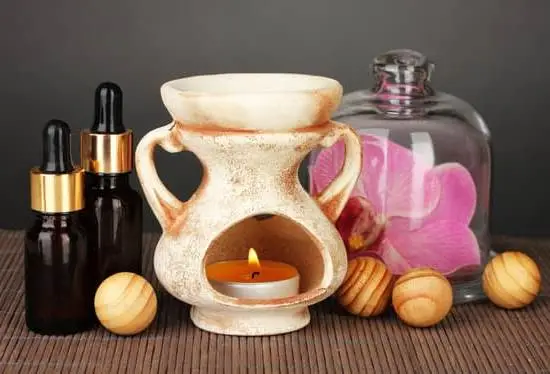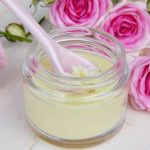How does aromatherapy work alongside orthodox medicine? Aromatherapy, the use of essential oils for therapeutic purposes, has a long history of being used in conjunction with traditional medical practices. This article explores the concept of aromatherapy and its historical integration with orthodox medicine, as well as its role in modern healthcare.
Aromatherapy is a holistic healing treatment that uses natural plant extracts to promote health and well-being. It dates back to ancient civilizations such as China, Egypt, and India, where aromatic plants were used for religious rituals, medicinal purposes, and personal care. Over time, the practice of aromatherapy has evolved into a popular form of alternative medicine that complements conventional medical treatments.
In today’s healthcare landscape, aromatherapy is gaining recognition for its potential to enhance patient outcomes and improve overall wellness. Its use in conjunction with orthodox medicine is becoming more prevalent as healthcare providers seek to provide comprehensive and personalized care for their patients. As we delve into the overview of aromatherapy and its role in modern medicine, it becomes evident that this complementary approach offers a holistic way to address physical and mental health conditions.
Overview of Aromatherapy
Aromatherapy is a holistic healing treatment that uses natural plant extracts, known as essential oils, to promote physical and mental well-being. These essential oils are extracted from various parts of plants and then used in different ways to improve health and mood. Aromatherapy has been used for centuries in conjunction with orthodox medicine to treat various health conditions, relieve symptoms, and promote overall wellness.
The principles of aromatherapy are based on the idea that the inhalation or topical application of these essential oils can stimulate brain function. These aromas are also believed to have an impact on the body’s limbic system, which plays a role in emotions, behavior, sense of smell, and long-term memory. As a result, it is thought that aromatherapy can help alleviate stress and anxiety, improve sleep quality, and reduce pain perception.
There are several methods of using aromatherapy, including diffusing essential oils into the air, inhaling them directly from a bottle or cloth, applying them to the skin through massage or lotions, and adding them to bathwater. Some popular essential oils used in aromatherapy include lavender for relaxation and stress relief, peppermint for energy and focus, eucalyptus for respiratory support, tea tree for antibacterial properties, and lemon for mood enhancement.
Each essential oil has its own unique benefits and can be tailored to individual preferences and needs.
| Benefits | Popular Essential Oils Used |
|---|---|
| Alleviates stress and anxiety | Lavender |
| Improves sleep quality | Eucalyptus |
| Reduces pain perception | Peppermint |
Role of Aromatherapy in Medicine
Aromatherapy has been utilized for centuries as a complementary treatment to conventional medicine, and its role in modern healthcare is continuing to gain recognition. Aromatherapy involves the use of plant-based essential oils to promote physical and psychological well-being. The therapeutic application of aromatherapy has become increasingly integrated into traditional medical practices, offering holistic support for patients seeking alternative or adjunctive treatments.
The role of aromatherapy in modern medicine extends beyond just the use of essential oils for relaxation and stress relief. It is now being incorporated into various healthcare settings, including hospitals, clinics, and rehabilitation centers, to address a wide range of health conditions. Healthcare providers are recognizing the potential benefits of aromatherapy in improving patient outcomes and enhancing the overall quality of care.
The integration of aromatherapy with orthodox medicine often involves collaboration between trained aromatherapists and medical professionals. This interdisciplinary approach allows for the safe and effective use of essential oils alongside conventional treatments. By doing so, patients can benefit from a more holistic approach to healthcare that addresses their physical, emotional, and mental well-being. Additionally, by leveraging the healing properties of aromatic plants, healthcare providers can offer personalized treatment plans that cater to individual patient needs.
- Aromatherapy can be used in conjunction with traditional medical practices through various methods such as inhalation, topical application, or massage therapy.
- Essential oils commonly used in aromatherapy include lavender for relaxation, peppermint for pain relief, and tea tree for its antimicrobial properties.
- Research has shown that certain essential oils have therapeutic effects on mood disorders, anxiety, chronic pain, and nausea when used alongside orthodox medicine.
Benefits of Aromatherapy
Aromatherapy has been used for centuries as a complementary treatment alongside orthodox medicine, and its potential benefits in treating various physical and mental health conditions have been increasingly recognized in modern healthcare. The use of essential oils in aromatherapy has been shown to have therapeutic effects on the body and mind. Here are some potential benefits of aromatherapy:
- Stress Reduction: Certain essential oils, such as lavender, chamomile, and bergamot, have calming properties that can help reduce stress and anxiety levels. Aromatherapy massage or diffusing these essential oils can promote relaxation and a sense of well-being.
- Pain Management: Some essential oils, like peppermint and eucalyptus, have analgesic properties that can help alleviate pain. Aromatherapy treatments targeting specific areas of discomfort through massages or compresses may provide relief for individuals experiencing chronic pain conditions.
- Improved Sleep Quality: The soothing aroma of essential oils like lavender and valerian root can aid in promoting better sleep quality. Diffusing these essential oils in the bedroom or using them in a bedtime bath may help individuals struggling with insomnia or disrupted sleep patterns.
- Mood Enhancement: Citrus essential oils such as lemon and orange are known for their uplifting properties that can enhance mood and alleviate symptoms of mild depression. Aromatherapy treatments using these essential oils may be beneficial for individuals experiencing emotional distress.
It is essential to note that while aromatherapy offers potential benefits, it should not replace conventional medical treatment. When used alongside orthodox medicine, aromatherapy can complement traditional healthcare practices by providing additional support for overall well-being.
Seeing how does aromatherapy work alongside orthodox medicine involves understanding how both approaches can work together cohesively to benefit the patient’s general health outcomes. By integrating aromatherapy into mainstream medical care, patients may experience a more holistic approach to wellness that addresses their physical, mental, and emotional needs. As research continues to explore the efficacy of aromatherapy in conjunction with orthodox medicine, its role in modern healthcare is becoming increasingly prominent.
Additionally, educating patients about the safe use of aromatherapy within the context of their existing medical treatments is crucial. Healthcare providers play an integral role in guiding patients on incorporating aromatherapy into their overall care plan to ensure its compatibility with existing medical interventions. By promoting a collaborative approach between aromatherapists and medical professionals, patients can reap the combined benefits of both modalities for improved health outcomes.
Scientific Evidence
Understanding the Research
Aromatherapy has been the subject of numerous scientific studies and research aimed at understanding its potential benefits and effectiveness in complementing orthodox medicine. These studies have explored the impact of essential oils on physiological and psychological health, as well as their role in enhancing traditional medical treatments.
Researchers have investigated the effects of aromatherapy on stress, anxiety, sleep quality, pain management, and other health-related issues. By examining the scientific evidence behind aromatherapy, healthcare providers can better understand how to integrate this practice into patient care.
Evidence-Based Applications
Several clinical trials have demonstrated the potential of aromatherapy to improve patient outcomes when used alongside standard medical treatments. For example, a study published in the Journal of Clinical Oncology found that cancer patients experienced reduced anxiety and depression levels after receiving aromatherapy massage therapy. Another study in Pain Management Nursing revealed that peppermint oil aromatherapy significantly decreased nausea and vomiting in postoperative patients. These findings highlight the tangible benefits of using aromatherapy as a complementary approach to conventional medicine.
Collaborative Care Opportunities
The body of scientific evidence supporting aromatherapy opens up collaborative care opportunities for healthcare professionals seeking to provide holistic treatment options for their patients. By understanding how different essential oils can positively impact various health conditions, medical practitioners can develop personalized integrative approaches that combine orthodox medicine with aromatherapy.
This integrated care model allows for a more comprehensive treatment plan that addresses both physical and emotional well-being while leveraging the therapeutic properties of essential oils. Ultimately, these collaborative efforts enhance patient-centered care by offering a wide range of healing modalities to support overall wellness.
Safety and Risks
Aromatherapy has been used for centuries as a complementary treatment to orthodox medicine. However, it is essential to address the safety concerns and potential risks associated with using aromatherapy alongside traditional medical practices. While aromatherapy can provide numerous benefits, improper use or lack of knowledge about essential oils can lead to adverse effects.
One of the main safety concerns with aromatherapy is the incorrect usage of essential oils. Essential oils are highly concentrated extracts from plants, and if not diluted properly, they can cause skin irritation, allergic reactions, or even toxicity when ingested. It is crucial for individuals to seek guidance from trained professionals when using essential oils for therapeutic purposes to ensure safe and effective usage.
Another potential risk of using aromatherapy alongside orthodox medicine is the interaction of essential oils with certain medications. Some essential oils may interfere with the effectiveness of prescription drugs or exacerbate certain health conditions. Therefore, individuals undergoing medical treatment should consult their healthcare provider before incorporating aromatherapy into their regimen to prevent any adverse reactions or conflicts.
Furthermore, there is a risk of misinformation regarding the effectiveness and safety of aromatherapy products in the market. Many essential oil products are not regulated by health authorities, leading to variations in quality and purity. Consumers should be cautious when purchasing essential oils and ensure that they are from reputable sources to minimize potential risks.
| Safety Concerns | Potential Risks |
|---|---|
| Incorrect usage of essential oils | Skin irritation, allergic reactions, toxicity |
| Interaction with medications | Reduced effectiveness of drugs, exacerbation of health conditions |
| Misinformation in the market | Variations in quality and purity of essential oils |
Integrative Approaches
Healthcare Providers Embracing Aromatherapy
In recent years, there has been a noticeable shift in the approach to patient care within the medical community. Many healthcare providers are recognizing the potential benefits of incorporating complementary therapies such as aromatherapy into their treatment plans.
This integrative approach aims to provide patients with a holistic and well-rounded healthcare experience, addressing not only physical symptoms but also mental and emotional well-being. As a result, more hospitals, clinics, and wellness centers are offering aromatherapy as part of their services, allowing patients to reap the therapeutic benefits of essential oils alongside traditional medical treatments.
Positive Outcomes and Patient Satisfaction
The integration of aromatherapy into mainstream healthcare has yielded positive outcomes for many patients. Numerous reports have indicated that individuals undergoing medical treatments or procedures in conjunction with aromatherapy have experienced reduced levels of anxiety, improved pain management, and overall enhanced well-being.
Additionally, several studies have shown that patients who receive aromatherapy as part of their healthcare experience report higher levels of satisfaction with their treatment. These positive outcomes emphasize the potential for aromatherapy to work alongside orthodox medicine in providing comprehensive care for patients.
The Future of Integrative Healthcare
As the evidence supporting the benefits of aromatherapy continues to grow, it is likely that this integrative approach will become more commonplace within healthcare settings. The collaboration between conventional medicine and complementary therapies reflects a shift towards a more patient-centered model of care.
By recognizing the value of holistic approaches to health and wellness, healthcare providers are embracing new ways to enhance patient outcomes and improve overall quality of care. Ultimately, the increasing integration of aromatherapy into traditional medical practices highlights a promising future for complementary therapies in modern healthcare.
Conclusion
In conclusion, aromatherapy has been used for centuries as a complementary approach to orthodox medicine. As discussed, the integration of aromatherapy into modern healthcare practices is growing, and there is increasing evidence to support its effectiveness in treating a wide range of physical and mental health conditions. By incorporating essential oils and aromatherapy techniques into treatment plans, healthcare providers are able to offer holistic care that addresses the needs of the whole person.
The potential benefits of aromatherapy in medicine are significant, with studies showing positive outcomes in reducing stress, anxiety, pain, and other symptoms. Additionally, the safety concerns associated with using aromatherapy alongside orthodox medicine can be mitigated through proper education and guidance from qualified practitioners. With the growing trend of integrative approaches in healthcare, it is important to continue researching and exploring how aromatherapy can enhance traditional medical practices.
In essence, the question of “how does aromatherapy work alongside orthodox medicine” can be answered by acknowledging the potential for symbiotic collaboration. Aromatherapy offers a holistic approach that can complement conventional medical treatments, providing patients with a more comprehensive and personalized care plan. As more scientific evidence emerges and healthcare providers embrace integrative approaches, the future looks promising for the role of aromatherapy alongside orthodox medicine.
Frequently Asked Questions
Why Is Aromatherapy a Complementary Medicine?
Aromatherapy is considered a complementary medicine because it is used in conjunction with traditional medical treatments to support overall health and well-being. It focuses on using essential oils to enhance physical and mental well-being.
What Is a Scientific Benefit of Aromatherapy in Relation to Allopathic Medicine?
One scientific benefit of aromatherapy in relation to allopathic medicine is its ability to reduce stress, anxiety, and depression. Studies have shown that certain essential oils can have a calming effect on the nervous system, which can complement conventional medical treatments for mental health conditions.
What Is the Difference Between Aromatherapy and Herbal Medicine?
The main difference between aromatherapy and herbal medicine lies in their methods of application and use. Aromatherapy primarily involves the use of essential oils through inhalation or topical application, while herbal medicine uses plants or plant extracts (e.g., leaves, roots) orally or topically for medicinal purposes. Both practices harness the healing properties of plants, but their applications differ greatly.

Are you looking for a natural way to improve your health and wellbeing?
If so, aromatherapy may be the answer for you.





